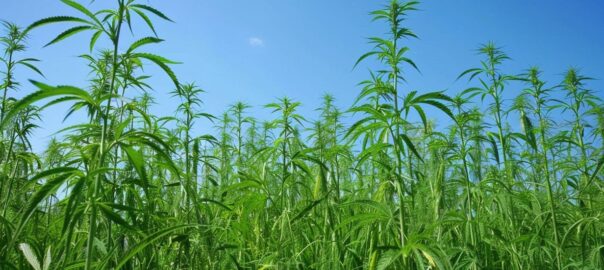Hemp farming has garnered significant attention in recent years due to its multifaceted benefits and versatile applications. Understanding the nuances of hemp cultivation is essential for farmers looking to venture into this promising industry.
In this comprehensive guide, we delve into the intricacies of hemp farming, exploring its historical significance, legal framework, cultivation practices, economic opportunities, and future prospects.
Understanding Hemp
Before diving into the specifics of hemp farming, it’s crucial to understand the plant itself. Hemp, scientifically known as Cannabis sativa, is a versatile crop known for its fibrous stalks, nutritious seeds, and therapeutic compounds. It’s important to differentiate hemp from its close relative, marijuana, which contains higher levels of psychoactive tetrahydrocannabinol (THC). Hemp, on the other hand, contains negligible levels of THC, making it unsuitable for recreational use.
Legality and Regulations
The legal landscape surrounding hemp farming varies from country to country. While some nations have embraced hemp cultivation for its economic and environmental benefits, others maintain strict regulations due to historical stigma and misconceptions.
Understanding the legal framework governing hemp cultivation is essential for farmers to navigate the industry successfully.
Environmental Benefits of Hemp Farming
One of the most compelling arguments for hemp cultivation is its environmental sustainability. Hemp has a remarkable ability to sequester carbon dioxide from the atmosphere, making it a valuable tool in combating climate change. Additionally, hemp’s deep roots help prevent soil erosion and promote soil health, making it an ideal crop for regenerative agriculture practices.
Hemp Cultivation Practices
Successful hemp cultivation begins with proper planning and execution. Farmers must consider factors such as soil quality, climate conditions, and pest management strategies to ensure optimal yields. Selecting the right hemp varieties suited to local growing conditions is also crucial for maximizing productivity and minimizing risks.
Varieties of Hemp
Hemp comes in various forms, each with its unique characteristics and uses. Fiber hemp varieties are prized for their strong and durable fibers, which are used in textiles, paper, and construction materials. Seed hemp varieties produce nutritious seeds rich in protein, omega-3 fatty acids, and other essential nutrients. CBD-rich hemp varieties, meanwhile, contain high levels of cannabidiol (CBD), a non-intoxicating compound with therapeutic properties.
Harvesting and Processing
Timing and methods of harvest play a crucial role in determining the quality and yield of hemp crops. Once harvested, hemp undergoes various processing techniques depending on its intended use.
Fiber hemp, for example, undergoes retting and decortication to extract fibers, while seed hemp requires cleaning and hulling to obtain edible seeds. CBD-rich hemp undergoes extraction processes to isolate CBD for use in various products.
Applications of Hemp
The versatility of hemp extends to its myriad applications across various industries. Hemp fibers are used in textiles, rope, paper, and insulation, offering sustainable alternatives to traditional materials. Hemp seeds are valued for their nutritional profile, making them popular ingredients in health foods, snacks, and supplements. CBD-rich hemp extracts are utilized in wellness products such as oils, tinctures, and topicals, offering natural remedies for various ailments.
Economic Opportunities
The growing demand for hemp products presents lucrative opportunities for farmers and entrepreneurs. As consumer awareness of hemp’s benefits continues to grow, so does the market for hemp-derived products. From textiles and food products to pharmaceuticals and cosmetics, the potential applications of hemp are vast, offering diverse revenue streams for those involved in its cultivation and processing.
Challenges in Hemp Farming
Despite its promise, hemp farming is not without its challenges. Stigma and misconceptions surrounding hemp and its association with marijuana can hinder market acceptance and regulatory approval. Additionally, navigating the complex regulatory landscape governing hemp cultivation can be daunting for newcomers to the industry. Overcoming these obstacles requires education, advocacy, and collaboration among stakeholders.
Research and Innovation
Advancements in hemp breeding, cultivation techniques, and processing technologies are driving innovation in the industry. Researchers are continually exploring ways to improve crop yields, enhance fiber quality, and maximize the therapeutic potential of hemp-derived compounds. Technology, such as precision agriculture and genetic engineering, holds promise for optimizing hemp production and addressing emerging challenges.
Global Hemp Farming Trends
Hemp farming is experiencing rapid growth worldwide, fueled by increasing demand for sustainable alternatives and therapeutic products. Emerging markets in regions such as North America, Europe, and Asia are driving global expansion, while international trade agreements are facilitating cross-border commerce. Understanding global hemp farming trends is essential for staying informed and capitalizing on emerging opportunities.
Case Studies
Examining successful hemp farming ventures provides valuable insights into best practices, challenges, and lessons learned.
From small-scale organic farms to large-scale commercial operations, case studies offer real-world examples of successful hemp cultivation models. By studying these cases, farmers can glean valuable insights and apply them to their own operations for greater success.
Future Outlook
The future of hemp farming looks promising, with continued growth and innovation on the horizon. As public perception evolves and regulatory barriers are addressed, the hemp industry is poised for exponential expansion. With ongoing research, technological advancements, and market diversification, hemp farming has the potential to become a cornerstone of sustainable agriculture and economic development.
Conclusion
In conclusion, hemp farming represents a compelling opportunity for farmers, entrepreneurs, and consumers alike.
With its diverse applications, environmental benefits, and economic potential, hemp stands poised to revolutionize agriculture and industry. By understanding the nuances of hemp cultivation, navigating regulatory challenges, and embracing innovation, stakeholders can position themselves for success in this burgeoning industry.
